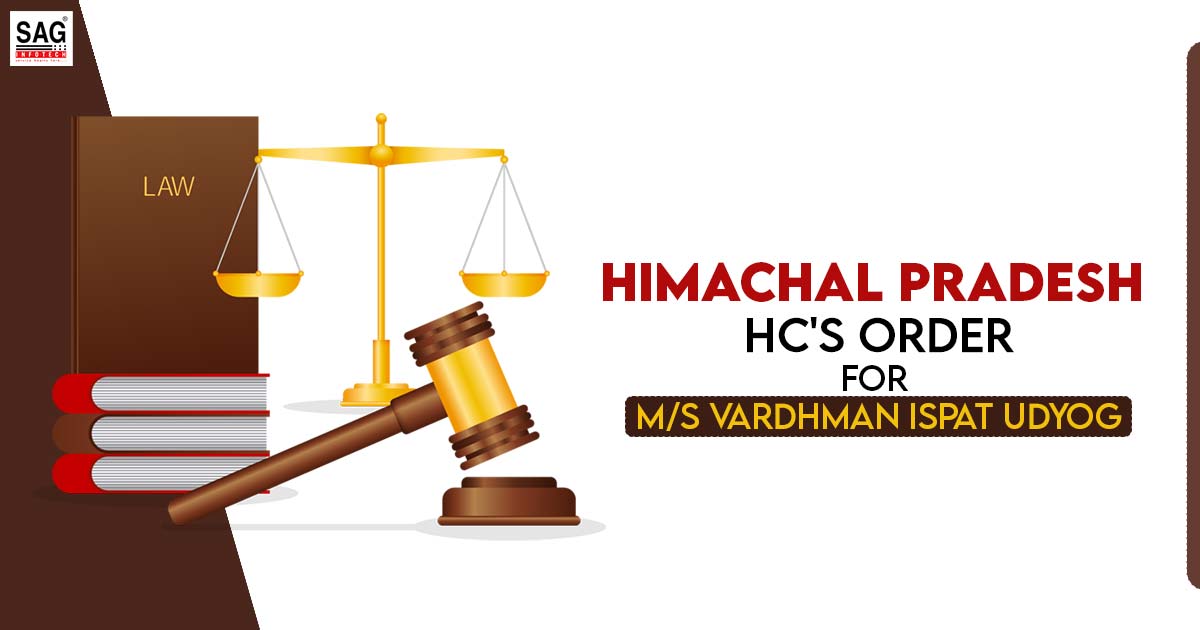
Given that GSTAT has not been established, the Himachal Pradesh High Court has halted the service tax cum-divisional commissioner’s decision.
According to the bench of Justice Sandeep Sharma, the petitioner had no choice but to turn to the High Court through a petition filed under Article 227 of the Indian Constitution, which otherwise gives the Court the authority to exercise supervision over all courts that are subordinate to them, including the authorities exercising quasi-judicial powers.
As there would be no appellate tribunal that needs to be made for the provisions contained under Section 109 of the Himachal Pradesh Goods and Services Tax Act, the 2017 petitioner/assessees was compelled to approach the High Court under Article 227 of the Constitution of India.
The applicant asks for direction from the respondent/department not to act in furtherance of the order issued via the Commissioner (Appeals), HP Goods and Service Tax-cum-Divisional Commissioner, Shimla Division.
The applicant filed the appeal under Section 107(1), challenging the order passed by the Joint Commissioner of State Taxes and Excise, Central Enforcement Zone, Una, which came to be dismissed.
The respondent filed a show cause notice headed “intimation of tax as being payable under Section 73 (5) or 74 (5),” implying that the petitioner was informing the respondent of its tax liability.
The petitioner filed representation after receiving the show cause notice, but the respondent required the petitioner to deposit the due amount of tax, interest, and penalty within three weeks of the order’s issuance. The petitioner filed an appeal against the ruling under Section 107 (1), which was dismissed.
The taxpayer maintained that, while provisions in Section 112 (1) enable the petitioner the right to access the appellate tribunal, it is otherwise necessary to be formed under Section 109. However, because it has yet to be formed, the petitioner was forced to approach the High Court in proceedings filed under Section 227 of the Indian Constitution.
Read Also: Cancelling GST Registration Retroactively Without a Valid Reason is Arbitrary
The council maintained that a petition under Article 227 of the Indian Constitution is unconstitutional, especially when a certain remedy is given by the GST Act itself.
As the court there would be a particular provision to file the petition against the order issued via the appellate authority tribunal and the same would have not yet been made under Section 109, no other remedy would be present for the applicant to save and except the plea under Article 227 of the Constitution of India, that indeed would make able the court to practice the supervisory jurisdiction over all the courts subordinate to the same along with the courts practising the quasi-judicial powers.
Recommended: Best Strategies to Handle GST SCN with Basic Reply Format
The court ordered the respondent not to act in furtherance of the appellate authority’s order until the appellate tribunal is established by the State of Himachal Pradesh in accordance with Section 109 of the Act.
| Case Title | M/s Vardhman Ispat Udyog Versus State of Himachal Pradesh and Ors. |
| Citation | CMPMO No. 447 of 2023 |
| Date | 18.08.2023 |
| Counsel For Appellant | Mr. Shrawan Dogra, Senior Advocate with Mr. Manik Sethi, Advocate. |
| For The Respondents | Mr. Rajan Kahol, Mr. Vishal Panwar and Mr. B.C. Verma, Additional Advocates General with Mr. Rahul Thakur and Mr. Ravi Chauhan, Deputy Advocates General. |
| Calcutta High Court | Read Order |